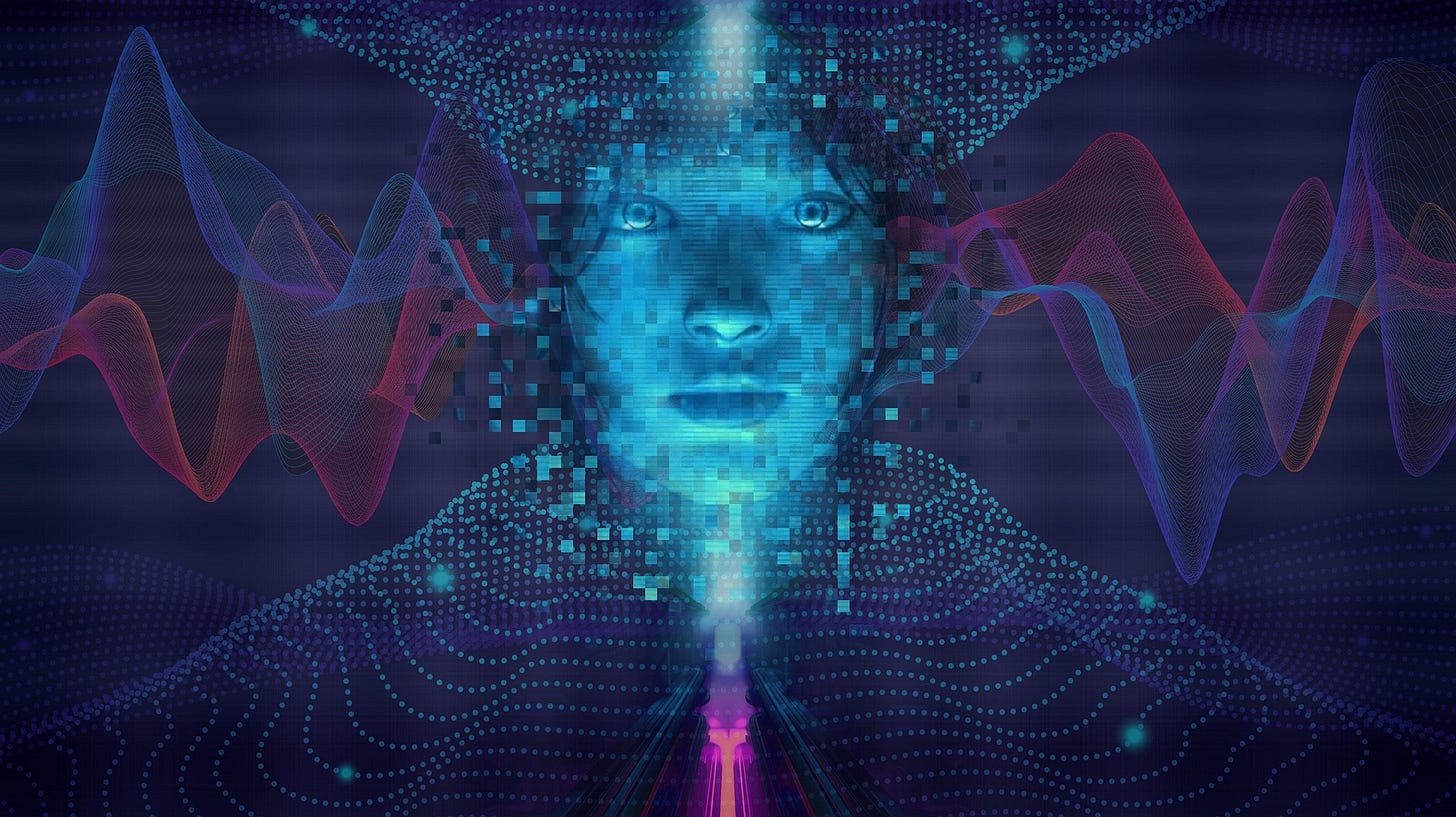Will AI become conscious? | Press review n°3
A selection of important news about artificial intelligence during the week of April 21 to 27, 2025.
Welcome to the third press review of Artificial reality. I publish a selection of the latest important developments in AI every Sunday. Have a good read!
📰 Read
Will AI become conscious?
The artificial intelligence company Anthropic, known for its chatbot Claude, is studying AI welfare. In a press release published on Thursday, it explains that new questions are emerging because AI models begin to approximate or surpass human qualities: should we be concerned about their potential consciousness? Should we be concerned about their welfare?
The American startup thinks that it’s time to adress these questions now that these systems can communicate, relate, plan, problem-solve and pursue goals.
Anthropic justifies its approach on the basis of a study which was published by academic and AI researchers in November 2024. Titled “Taking AI Welfare Seriously”, it underlines the fact that there is a realistic possibility that AI systems will be conscious and/or robustly agentic in the near future. They would thus deserve certain moral considerations.
It’s not the first time that researchers wonder about the potential consciousness, present or to come, of artificial intelligence. Blake Lemoine, an engineer who worked at Google, claimed in 2022 that the AI LaMDA was sentient, before he got fired. However, the American corporation seems open to the question because it recently published a job offer for a “post-artificial general intelligence” scientist, who will lead research projects on domains such as machine consciousness.
In a column of journalist Kevin Roose published on Thursday by The New York Times, Anthropic’s chief science officer Jared Kaplan explains that it is difficult to detect if AI systems have a consciousness because they are trained to mimic human emotions. For example, we can ask the chatbot Claude to talk about its feelings and it will probably give a compelling answer, but that does not mean it actually has emotions.
To go beyond the illusions created by artificial intelligence, it is possible to use techniques such as mechanistic interpretability, an AI subfield that studies the inner workings of systems to see if there are some structures similar to human consciousness.
To study the vast and complex topic of potential AI consciousness, Anthropic hired the researcher Kyle Fish in September 2024. In this video published on Thursday, he details some of the technical, philosophical and ethical aspects of his explorations.
Other important news of the week
Meta’s ‘Digital Companions’ Will Talk Sex With Users—Even Children
Instagram is using AI to find teens lying about their age and restricting their accounts
Meta rolls out live translations to all Ray-Ban smart glasses users
Google is paying Samsung an ‘enormous sum’ to preinstall Gemini
The Washington Post partners with OpenAI on search content
🎥 Watch
A conversation with DeepMind’s CEO
60 Minutes published an interview on Monday with Demis Hassabis, the CEO and co-founder of DeepMind, the AI research lab of Google. With the show’s host Scott Pelley, they discuss artificial general intelligence, exponential progress of AI, the Astra app, robotics, potential AI consciousness and the risks related to this technology.
The impact of data centers
Artificial intelligence needs large amounts of data and a lot of computing power to be trained and to process the prompts of users. The fast development of this technology thus pushes AI companies to build many data centers, which use vast quantities of energy and water.
Bloomberg published a news report on Tuesday about the data centers in North Virginia, the region where the development of this type of infrastructures is the most important in the world.
Journalist Josh Saul explores the impact of these centers on the inhabitants living nearby, on the electric system and on the environment. He also interviews citizens who are opposing their unconstrained development.
Read: AI Is Already Wreaking Havoc on Global Power Systems
Thank you for reading the third press review of Artificial reality! Have a good week and see you next Sunday.




